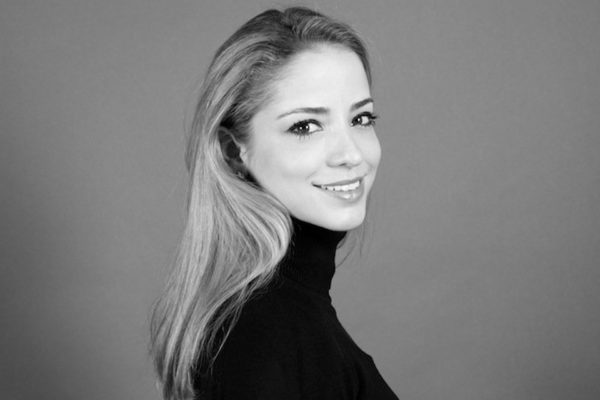‘A Bursary Is A Life Journey’
By
2 years ago
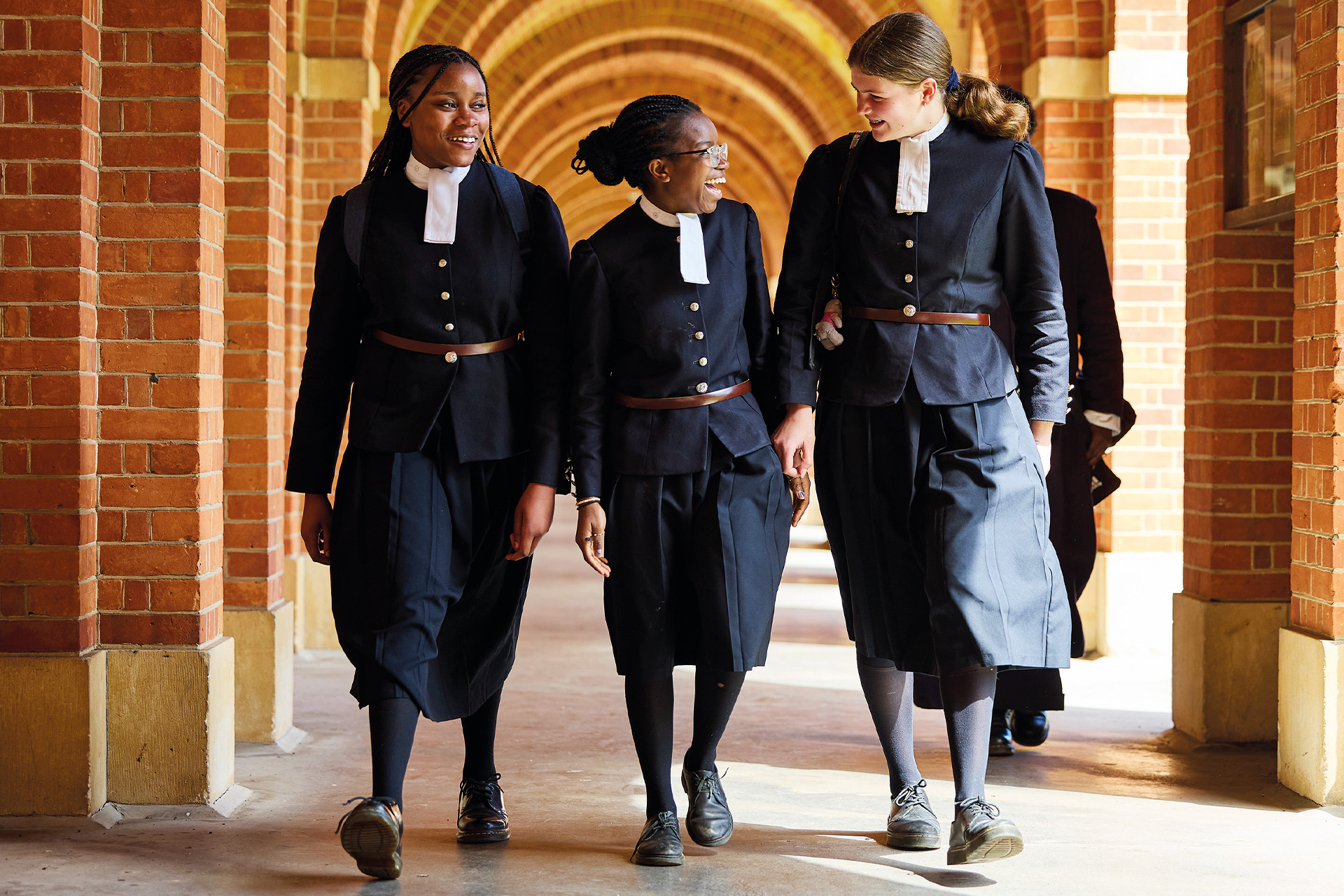
Few support the bursary system as passionately as those who benefited themselves, learns Alice Smellie
It’s an inspiring fact that bursaries support individual pupils, and also create legacies for future generations. ‘A bursary is a life journey,’ says Tim Day, Head of Alumni at Rugby School. ‘It’s a five-year scholarship, but it reaches way beyond that time.’ Of course the fundamental aim of a bursary is to support pupils who wouldn’t otherwise have the opportunities presented by the schools offering them. But a touching and practical by-product of bursaries is that those who receive them are frequently keen to give back to the institution that offered them such a great start in academic or sporting life. Whether this giving back is in the form of mentoring, speaking at the school or financial donation, bursaries are also helping to pay it forward for ensuing generations.
Take Trinity School in Croydon. It’s part of the John Whitgift Foundation which is one of the largest bursary providers in the country, and whose legacy is to educate and care for the people of Croydon, one of the most socially and economically diverse London boroughs. Seventeen percent of Trinity students receive bursaries – frequently as much as 100 percent of the fees – and many of these stay in touch with the school.
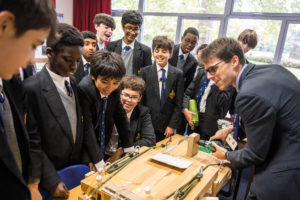
Trinity School, Croydon
‘Our student body benefits hearing from alumni who have gone on to make their mark on the world,’ says Jason Court, Director of Development, who is a Trinity alumnus himself. ‘One of the most powerful ways of demonstrating the life-changing benefits of a bursary is to hear first-hand from students. We hope that telling these stories to our community will help unlock further donations to enable more young people to benefit in the future.’
The ethos of the school – for all pupils – is about appreciating their privilege. ‘We are in the centre of the Croydon community, and we want to be an engine of social mobility and diversity; our pupils leave school with a sense of gratitude.’ It maintains close links with the community. ‘If a young person comes from one of our partner primary schools, they might go back to that school even whilst still at Trinity to offer support.’ This might be in the form of sports-related activities (often, but not always, at Trinity), volunteering to help tidy up facilities such as playgrounds, or helping out in classes, such as doing maths with Year 1 children.
One such ex-student is Paul Cleal OBE (class of 1984). After a stratospherically successful career at PricewaterhouseCoopers, he is now an advisor and non-executive board member for a diverse range of organisations including the Premier League, Guy’s & Thomas’ NHS Foundation Trust and the Metropolitan Police.
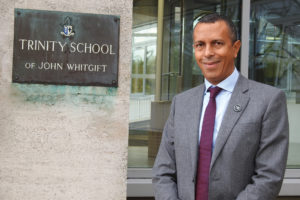
Paul Cleal OBE
‘I grew up a couple of miles away from Trinity, with a single mother and absent African father (with whom I later became close), and went to a local primary school that wasn’t great,’ he explains. ‘When I got into Trinity, I was the only non-white kid at the time; it was completely life-changing.
‘I’ve talked about my story, done a video for the school, and I’ve agreed to put something in my will by way of a legacy. Last year I came in and talked about what I do in football, and about diversity and inclusion. People focus on exam results, but it’s socialisation that makes a difference – the ability to cope at university and in the workplace.’
Christ’s Hospital is another school with altruism embedded into the ideology. One of the oldest schools in the country, it was founded in 1552, in Tudor England, when the young King Edward VI formed an initiative to help the homeless poor of the city. Now, the school gives free or substantially reduced places to over 630 pupils every year, providing them with stability and the opportunity to thrive and fulfil their potential. It has been described as, ‘having social mobility in its DNA.’
‘Our bursary alumni give around £2.5 – £3 million a year to fund other young people’s places,’ says Hugo Middlemas, Director of Development. ‘Many of them sponsor individual pupils and act as mentors. This connection can make an incredible difference, especially in the first couple of years, reassuring both pupils and parents.’
It’s not simply about handing over vast sums of money. The strength of appreciation and loyalty to the school inspires alumni to – literally – go the extra mile.
One former pupil, David, whose father died when he was just four, explains the importance of giving back. ‘I realise how lucky and fortunate I have been in my life.
Firstly, by gaining a place at Christ’s Hospital and then by having friends who were always there to put me on the right path. I went on to enjoy a long, happy and satisfying career at sea.
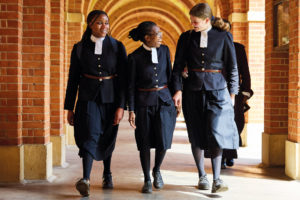
Christ’s Hospital School,
West Sussex
‘I realised that I wanted to give back to CH by supporting a current pupil, possibly someone who like me had lost a parent.
‘I set up a Trust Fund and entered two marathons, London and Rotterdam and, with a final 135-mile run around Anglesey, raised over £22,000 for Christ’s Hospital.’
‘There’s a very strong sense of service to society within the school,’ says Hugo. ‘We did some research into all former pupils; a lot give back to the school, but equally importantly, they give back to society.’ An incredible 43 percent volunteer each month (the UK average is 22 percent) and 10 percent have established a charity.
St Dunstan’s College in Catford has a pragmatic and dual approach to bursary pupils. ‘We have around 50 bursary pupils across the senior school,’ says Isabelle Blake-James, Director of Development and Alumni Relations. ‘We are on a journey, and in the last couple of years have started to engage more with current bursary students in view of how they can maintain ties with the school and support in the future. We generally instil a sense of philanthropy amongst all pupils, and remind them of the importance of trying to stay connected and giving back.’

St Dunstan’s School, Catford
‘By building up good relationships during school days, it is easier for the college to subsequently approach and ask for quotes and interviews from former bursary students. Most respond positively. However, I am planting seeds that I won’t see grow for 20 to 30 years. There’s no pressure at all, but it means so much to the school to have this continuing and supportive community.’
‘Some of the children we recruit are very inspiring,’ says Tim Day, who visits schools around the country and frequently sees the context from which these young people start. Rugby’s bursary alumni, like the others to whom we’ve spoken, frequently retain excellent and grateful relationships with the school. ‘Nobody cares about financial background,’ says Tim. ‘Those who come here have a good academic profile, and frequently something else that drives them, a passion for cricket, drama or music, that gives them social kudos amongst peers, and value as part of a community.’
And these young people go forth into the world ready to give back. ‘We had a young refugee boy aged 13, who was very intelligent, but had his struggles,’ says Tim. ‘He got good grades in the pandemic, in spite of being at home with limited access to WiFi and electronics. We supported him throughout and he won a place at a leading university.’ As the young man left, Tim asked whether he’d be an ambassador and recruit others like him. ‘Now, he comes to events, to receptions, and he is mentoring a young boy. We are privileged to have these kids with us.’
‘I came from a family where nobody went to university or worked in the white collar industry,’ points out Old Rugbeian Bartek Zakrzewski, who is the managing partner of a foreign exchange company. He has always been happy to support the school; there is currently an intern from his old house gaining work experience at his company.
‘I moved from Poland at the age of 13 with little English or understanding of the UK system. As well as an excellent education, Rugby gave me a lot of opportunities to network. I’ve stayed in touch and donate regularly. It had such a big impact on me, and I’d like to think I’ve supported others to enjoy the same opportunities.’
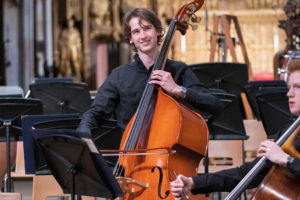
Performing at Alleyn’s School, London
At Alleyn’s School in southeast London, 10 percent of pupils receive transformational bursaries. The School was founded in 1619 by Edward Alleyn who strongly believed in giving the gift of education to those whose circumstances might other prevent that. He funded the first 12 scholars, which very much set the tone for future pupils and is a tradition that runs strong in the school’s ethos today, says Director of Development and Alumni Relations, Frank Keenan.
‘Alleyn’s pupils go into the world curious, courageous and kind. We are always delighted to see them giving back to their communities and to the school, through, higher education and careers inspiration to current students, establishing innovative social enterprises, and also through supporting the school’s partnership and fundraising efforts which enable our strong bursary programme.’
Appreciating privilege and education, and wishing to contribute to society is something we hope all our children will learn at school. The bursary system is to be fully saluted for all it’s achieving – for a long time to come.





